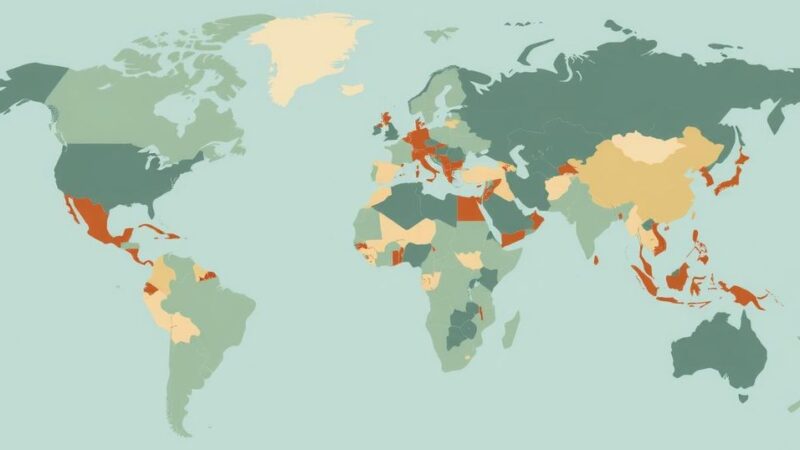Lebanon is set to deport Egyptian dissident Abdul Rahman Yusuf to the UAE after his arrest on 28 December. Yusuf, an activist critical of Egyptian authorities, celebrated the fall of Assad in Syria and attracted regional condemnation. Amnesty International has requested that Lebanese officials refrain from extraditing him due to potential persecution risks in the UAE.
Lebanon is set to deport Abdul Rahman Yusuf, an Egyptian dissident and activist, to the United Arab Emirates (UAE) following his detention on 28 December. Yusuf was apprehended upon returning from Syria, where he publicly celebrated the fall of Syrian President Bashar al-Assad and voiced hopes for revolutionary changes across the Arab world. His outspoken criticism of Egyptian President Abdel Fattah el-Sisi has made him a controversial figure, attracting the attention of authorities in Egypt and Saudi Arabia who have demanded his removal.
Reports indicate that the Lebanese cabinet made the decision to deport Yusuf after significant legal and political discourse surrounding his case. Local media outlets have noted that Yusuf’s videos documenting his sentiments during the celebrations in Damascus have garnered widespread attention on social media, alarming regimes in the region. Ahead of the deportation, Amnesty International vehemently urged Lebanese authorities to dismiss any extradition requests from Egypt and the UAE, emphasizing the potential threat of persecution Yusuf could face.
Amnesty’s Middle East and North Africa Deputy Director, Sara Hashash, commented on the matter, highlighting that “Criticising the authorities is not a crime.” The organization asserted that forcibly deporting Yusuf would contravene international law principles regarding non-refoulement, stressing the importance of prioritizing human rights and freedom of expression over political affiliations and economic considerations.
This situation arises amid a broader discourse regarding freedom of expression and the treatment of dissent in the Middle East. Abdul Rahman Yusuf, as the son of a prominent cleric, carries considerable political implications in his activism against established regimes. His outspoken remarks against authoritarian practices in the region resonate with widespread sentiments among dissenters and activists who strive for democratic reforms. The involvement of international human rights organizations, such as Amnesty International, illustrates the tension between state sovereignty and individual rights, especially concerning activists who are vocal against their governments.
The impending deportation of Abdul Rahman Yusuf underscores critical concerns regarding freedom of speech, human rights, and governmental accountability in Lebanon and the broader Middle East. As regional authorities tighten their grip on dissent, this case represents a pivotal moment for the Lebanese government to affirm its commitment to protecting civil liberties amid external political pressures. The call for non-refoulement and the potential risks faced by Yusuf upon his deportation to the UAE further highlight the urgent need for adherence to international human rights standards.
Original Source: www.middleeasteye.net






